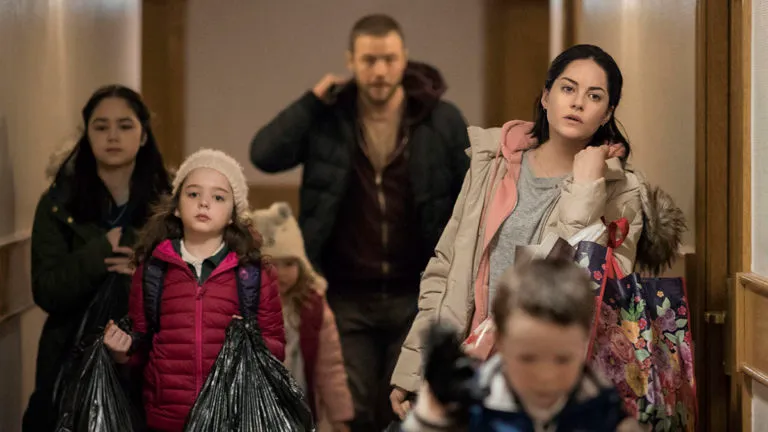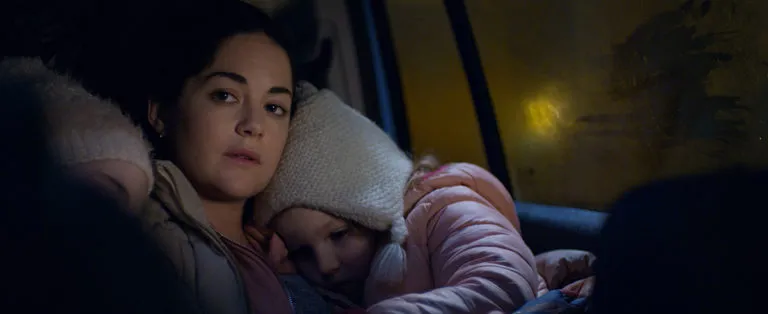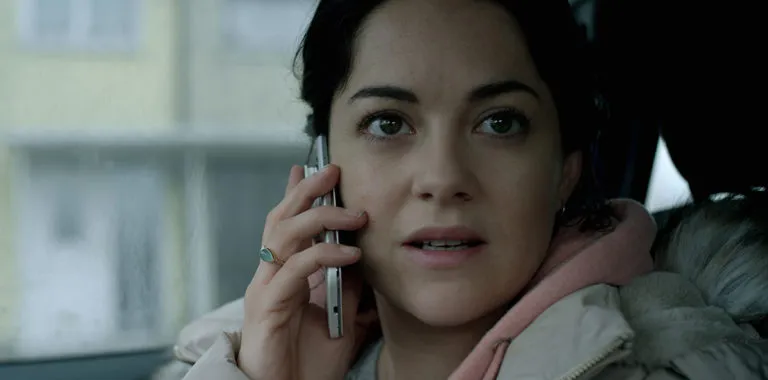Rosie shows why every homeless family is a tragedy
Published: by Alastair Ball

Homelessness is all around us. But while we can see people sleeping in shop doorways or under awnings, that’s just the tip of a much larger iceberg.
There are currently 61,480 homeless families in England who are not on the streets but are instead living in temporary accommodation, without the safety and stability of a home.
This kind of homelessness often feels like an abstract concept. We know these people exist from the official figures, but their lives are hard to imagine because they are hidden away in places we don’t see.
The hidden homeless
One way to understand this hidden homelessness is through fiction, and now a new film, called ‘Rosie’ from director Paddy Breathnach, does exactly this — much like what Ken Loach’s ‘I, Daniel Blake’ does for welfare recipients.
‘Rosie’ follows the story of the eponymous mother Rosie Davis, her husband John Paul, and their four children as they attempt to navigate ordinary life while being homeless.
The film is set in Dublin, but Rosie’s situation is similar to that of thousands of homeless families in England. It’s a powerful portrait of an ordinary family in extraordinarily desperate circumstances.

Inside the life of a homeless family
Just like a normal mum, Rosie does the school run, sees her husband off to work, looks after her infant daughter, does the laundry and puts her kids to bed, all while in temporary accommodation.
Meanwhile, John Paul works in a kitchen — but the family still can’t find anywhere they can afford to rent in the rapidly gentrifying Dublin. Writer Roddy Doyle said that the Davises are a traditional family, where the dad works and the mum looks after the children, except they don’t have a home.
The film takes us inside the life of a homeless family so that we can experience what it’s like. It gives us an unflinching view of the hurdles Rosie has to face in addition to being a full-time mum, like finding somewhere for her children to go to the toilet during the day when she is between stays in temporary accommodation. The film allows us to understand the strain that homelessness puts on a family.
Yet despite the hardship of her situation, Rosie is not miserable. Her love for her children shines through in every scene, even when she is angry or frustrated. Actress Sarah Greene brings real warmth and humanity to the role.
Rosie fights to maintain her pride by not using the word ‘homeless’, preferring to say that they are ‘lost’ instead. She ensures that her children have clean clothes and space to do their homework, despite living in temporary accommodation.
Searching for a home
During the two days we follow Rosie’s life, she tries to find any home for her family to rent on a long-term basis. Most of her time is taken up with issues arising from being homeless, mainly finding temporary accommodation for that night.
On the first day, she’s successful and her family finds a place in a hotel. But on the second day, no rooms are available and her family is forced to spend the night in their car. John Paul must sleep rough as there’s not enough space for them all in their car.
We see how this is a huge line for the family to cross. The film ends with the family alone, without a roof over their heads.
More than fiction
Rosie’s experience is very similar to that of homeless people in Britain. Like the 61,480 families in England, she and her family must stay in temporary accommodation.
And like 55% of homeless families in England, John Paul has a job, but they are still homeless.
There are even more similarities. Rosie’s family are homeless because their landlord sold their home, evicting them in the process. Meanwhile, in England, the most recent figures show that 24% of households that were homeless, or facing homelessness lost their last settled home due to eviction from a private rented tenancy.

No one should have to worry about where their children sleep
This film shows what we here are Shelter are working so hard to prevent. No one should have to worry about where their children will sleep tomorrow night. Much like the Davises, there are too many families living in temporary accommodation who desperately need safe and secure homes.
That’s why we need social housing — to provide safety and stability to families just like Rosie’s.
We have a comprehensive vision for social housing. But now we need your help, to put pressure on politicians to act.
With your support, we can make sure that no family is forced to spend the night in their car. Together we can stop homelessness.
‘Rosie’ is being shown at selected cinemas across the UK.